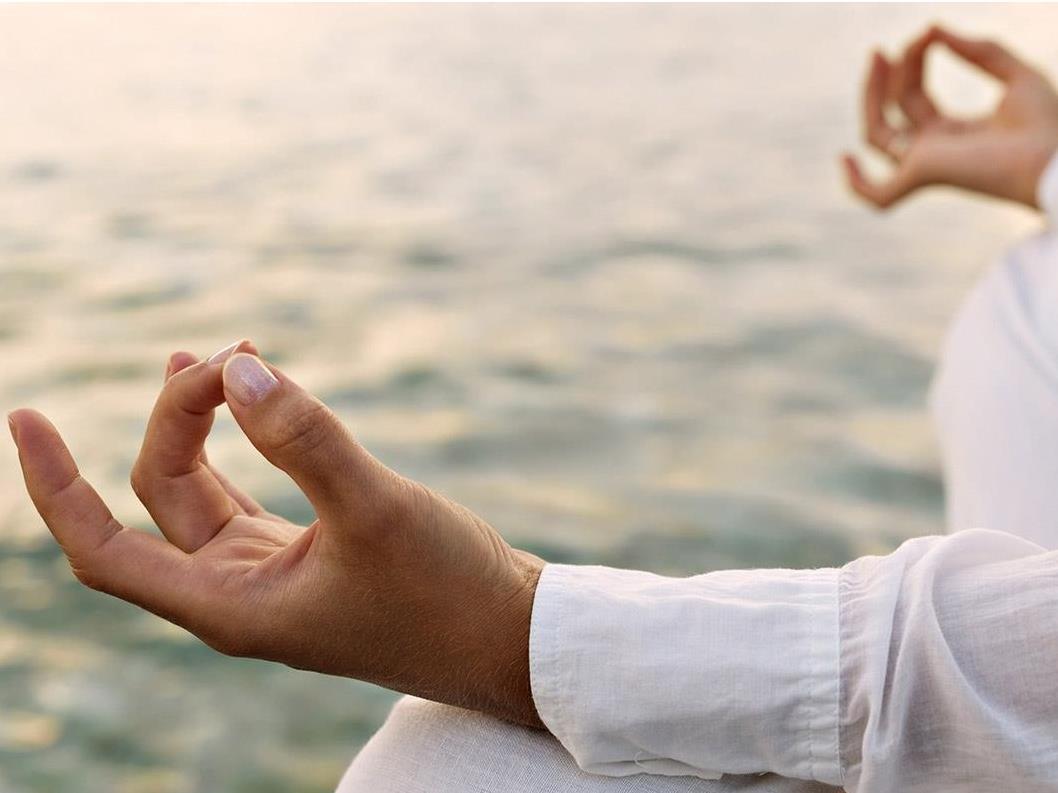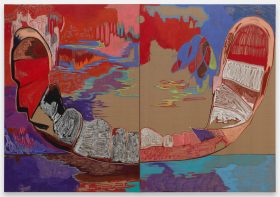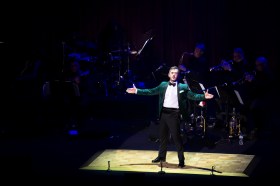Photo: MassageOne
A substantial body of research into meditation has proven meditation is valuable for to physical and mental health, including managing pain and treating depression.
There is less research on the value of meditation for creativity but an increasing number of artists and creators working in all kinds of fields say meditation has additional benefits for creative work in opening up the mind to processes that may be shut out by thinking, relieving the stress of remaining open to new ideas and improving focus.
Filmmaker David Lynch describes harnessing creative ideas through meditation as a process of diving deep to catch the big fish.
His book, Catching the Big Fish: Meditation, Consciousness and Creativity, explores how his transcendental meditation practice impacts his creative process.
He writes: ‘Ideas are like fish. If you want to catch little fish, you can stay in the shallow water. But if you want to catch the big fish, you’ve got to go deeper. Down deep, the fish are more powerful and more pure. They’re huge and abstract. And they’re very beautiful.’
Lynch is one of a number of successful creative people who has written about the power of meditation. For painter Jeffrey Smart it was a way of getting out of a creative slump. In his memoir Not Quite Straight he describes reaching a point of despair after living in Europe and returning to his hometown of Adelaide. His response? He went and sat by a waterfall in a valley in the hills and meditated for hours. From that came an assurance that he should keep working without question and be patient.
Meditation training is no longer the province of Buddhist monks or Hindu yogis. Classes are widely available in health centres, gyms, schools and increasingly in creative contexts.
Architect and artist Rena Czaplinska, runs drawing workshops using a method called Embodying Vision that integrates sketching, mindfulness and movement.
‘The benefit of practising meditation is that it helps to train the mind; it helps to calm down the chatter that obstructs us…there’s something described as a flow in the creative process. When you’re writing you’ll stop worrying about what you’re writing, you stop fiddling around and cleaning your desk and doing things and you’ve actually now forgotten about time and you’re high: flow. It’s a very high meditative state.’
As well as becoming more present by slowing down the chatter of the ‘monkey mind’ she says mindfulness of the body can assist in moving into an authentic state. ‘You become intelligent or literate about recognising different mind states and different feelings that come through the body so that you don’t get drowned in them without knowing what’s happening.’
The power of meditation to help you relax also has benefits for creativity. ‘A relaxed body is more opened. A body that’s breathing easily is more opened. A body that’s tense is shut,’ says Czaplinska.
Writer and teacher Barbara Brooks began meditating through her interest in Buddhism and now runs workshops on writing, creativity and meditation.
‘For me, it’s about learning to be present and that’s the state that you really need for creative work of any kind.
‘I came to it through a Buddhist tradition and in that way it’s taught as a very serious spiritual practice and it’s something that’s going to help you in your daily life but it’s also directed towards the purpose of living more authentically, or being more compassionate, and right livelihood.’
She points to the benefits other writers have gleaned from meditation. ‘I’ve read Alice Walker talking about how meditation helps her when she’s got a new writing project. She said: when you start a new work you have to have room for it in your life and that she learned partly through meditating over a long period that it can help you decide what’s really important and what’s extraneous.’
Brooks says she really became aware of the importance of making regular time and space for creative work – just turning up at the desk – when she she shifted from writing short stories to tackling a longer piece of work. As she acknowledges space is not just about hours, it’s also a mental quality.
‘So it’s not only sitting down at the desk for however long you can. It is about freeing your mind to some extent from worrying about whatever else you have to worry about and being attentive to the work that you want to do.’
‘One of the things that I’ve been taught in the meditation studies that I’ve done is that we spend an awful lot of time in hope and fear, worrying about what’s happened in the past and going over and over it or worrying about what’s going to happen in the future.
‘Often when you have a problem in your work it is something to do with yourself. So often it’s that you’re not ready to go on to the next stage or you are fearful about what you’re confronting or the questions that you’re confronting. I think that’s probably the most specific thing I can say about the way that meditation has helped me.’
Brooks says Buddhist or Zen meditation embraces the idea of living with paradoxes and contradictions. ‘I think that’s very related to creative work. You’re not necessarily engaged in finding a rational, logical solution to a problem. If you’re doing creative work there are some elements of it that I just think are a mystery and that you just have to be calm enough and confident enough to just not be fazed by that.’
Brooks says Zen meditation extends into walking meditation, something that she finds helpful when she strikes a problem in her work. ‘I find walking is really useful because it gets your body working and it somehow releases your brain from being totally concentrated on it but you can still be thinking about what you’re doing.’
Like Brooks, Czaplinska sees meditation as a way to connect with the mystery of creativity. ‘For me it is about a deep willingness to turn toward that which is mysterious and now and alive within me right now.
‘I need to be inspired by something to get this thing happening and that inspiration is not planned. It’s not because I followed this, this, this and this. It is a lot to do with: I am relaxed and open enough to catch it.
‘It doesn’t matter how well-trained I am and how many degrees I have – nothing to do with that – it’s to do with that I’m actually hearing it; I’m there at the time that it’s appearing so that I can notice it and recognise it. If I’m not there it doesn’t matter how many degrees I have it just goes right past me.’





